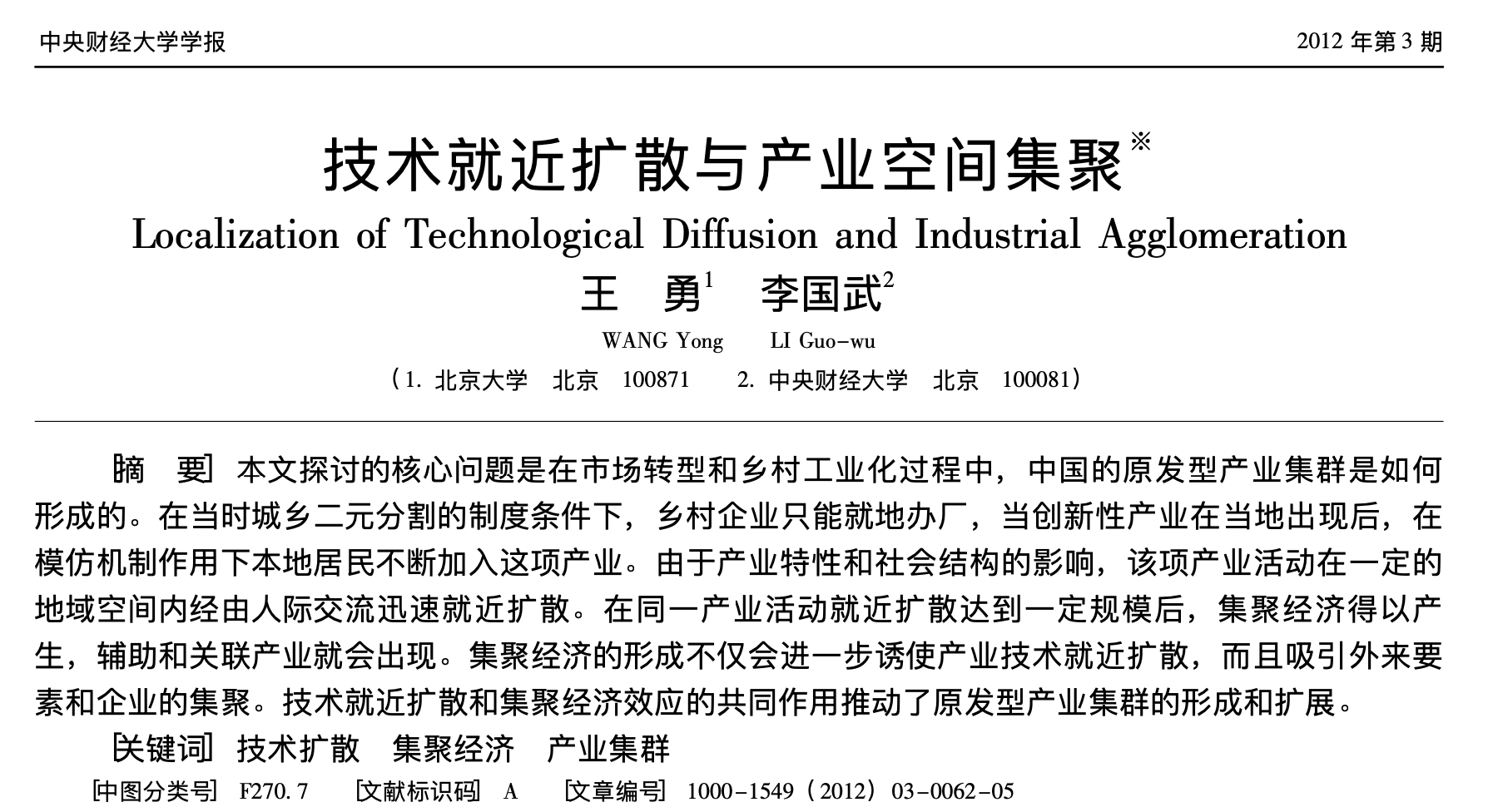
[Author]
WANG Yong, Director of the Center for International Political Economy, Peking University, Professor and Doctoral Supervisor at the School of International Relations at PKU, Academic Committee Member of the Center for International Strategic Research
LI Guowu, Professor at the School of Sociology and Psychology, Central University of Finance and Economics
[Abstract] The core problem investigated in this paper is the dynamic mechanism of endogenous industrial clusters during marketization transition and rural industrialization in China. Due to some institutional restrictions in planned economy era, rural firms can't choose location freely. After a new industry introduced into the local community by someone, local residents join in this industry one by one by means of imitation. Because of industrial characteristics and specific social structures, this industry diffused rapidly among the people who live in adjacent places. When the adopters of this industrial technology reach enough quantity, the effect of agglomeration economy emerges, and auxiliary and relevant industrial will appear subsequently. In turn, agglomeration effect facilitates further this industrial technology to diffuse locally and attract outside factors and firms into this region. The interplay of localization of technology diffusion and effect of agglomeration economy drives the formation and development of endogenous industrial clusters.
[Key words] Technological diffusion; Agglomeration economy; Industrial clusters
